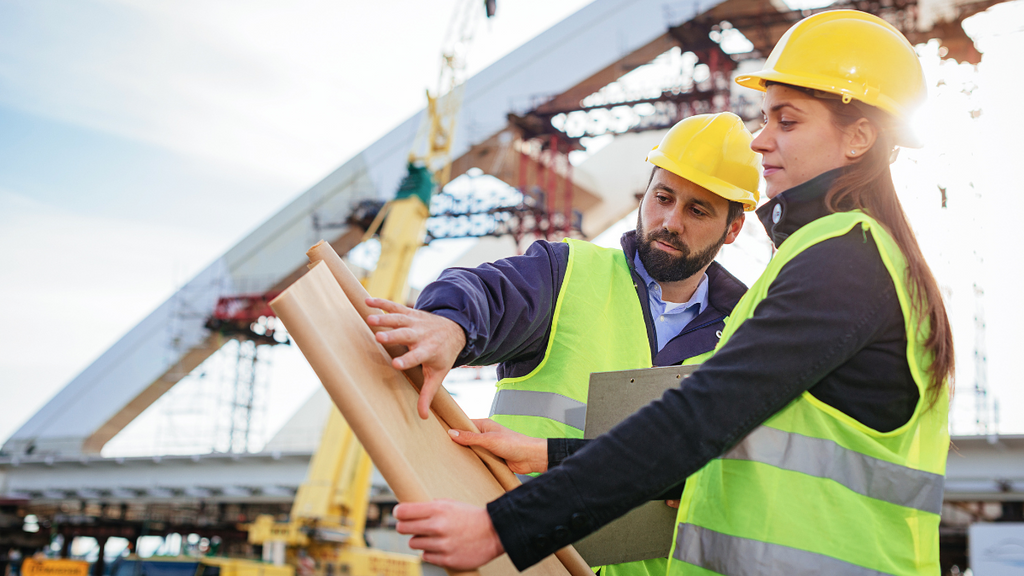Geotheta Things To Know Before You Buy
Geotheta Things To Know Before You Buy
Blog Article
Geotheta Can Be Fun For Everyone
Table of ContentsNot known Factual Statements About Geotheta Little Known Facts About Geotheta.Everything about GeothetaGeotheta for DummiesGeotheta Things To Know Before You Get This

They carry out website examinations, gather examples, execute research laboratory examinations, and analyze information to assess the suitability of the ground for building jobs - Consulting Engineers. Based on their findings, geotechnical designers offer suggestions for foundation style, slope stability, keeping structures, and mitigation of geotechnical hazards. They collaborate with other specialists, such as engineers, architectural designers, and building teams, to guarantee that geotechnical considerations are incorporated right into the general job style and implementation
By assessing the habits and residential properties of soil and rock, they can identify potential geotechnical threats such as landslides, dirt settlement, or incline instability. Their proficiency aids avoid failures or accidents that can threaten lives and residential property. Here are some detailed obligations and responsibilities of a geotechnical engineer: Website Examination: Geotechnical designers conduct site examinations to collect information on subsurface problems.
They analyze the information to recognize the buildings and actions of the dirt and rock, including their stamina, permeability, compaction qualities, and groundwater conditions. Geotechnical Evaluation and Style: Geotechnical engineers evaluate the data accumulated during website examinations to examine the stability and suitability of the website for building jobs. They perform geotechnical calculations and modeling to review aspects such as bearing capacity, negotiation, slope stability, side planet stress, and groundwater flow.
How Geotheta can Save You Time, Stress, and Money.
Structure Design: Geotechnical designers play a vital duty in developing foundations that can safely sustain the desired structure. They assess the soil problems and load demands to determine the proper foundation type, such as superficial structures (e.g., footings), deep structures (e.g (https://www.pageorama.com/?p=geotheta)., stacks), or specialized methods like soil renovation. They think about elements such as negotiation limitations, birthing capability, and soil-structure interaction to create ideal structure styles
They review building and construction strategies, display website activities, and perform field examinations to confirm that the design referrals are followed. If unpredicted geotechnical issues emerge, they examine the situation and give recommendations for removal or modifications to the layout. Risk Analysis and Mitigation: Geotechnical engineers analyze geotechnical risks and threats connected with the task website, such as landslides, liquefaction, or soil erosion.

Cooperation and Communication: Geotechnical designers work very closely with other specialists associated with a job, such as engineers, structural designers, and construction groups. Effective communication and cooperation are vital to incorporate geotechnical considerations right into the overall job layout and building procedure. Geotechnical engineers offer technological know-how, solution queries, and make sure that geotechnical needs are met.
Excitement About Geotheta
Here are some types of geotechnical engineers: Foundation Engineer: Foundation designers specialize in designing and evaluating foundations for structures. They evaluate the soil problems, lots needs, and website features to determine the most proper foundation type and design, such as shallow foundations, deep structures, or specialized methods like stack structures.
They assess the elements influencing incline security, such as soil buildings, groundwater problems, and incline geometry, and develop strategies to stop incline failings and alleviate threats. Quake Engineer: Earthquake designers focus on evaluating and developing frameworks to hold up against seismic pressures. They analyze the seismic threat of a website, assess dirt liquefaction possibility, and develop seismic design standards to make sure the safety and security and resilience of structures throughout earthquakes.
They perform area testing, accumulate examples, and analyze the accumulated information to define the dirt buildings, geologic developments, and groundwater conditions at a website. Geotechnical Instrumentation Engineer: Geotechnical instrumentation engineers concentrate on tracking and measuring the habits of soil, rock, and frameworks. They install and preserve instrumentation systems that monitor aspects such as dirt settlement, groundwater degrees, slope motions, and architectural displacements to analyze performance and give very early warnings of possible issues.
Some Ideas on Geotheta You Should Know
They conduct tests such as triaxial examinations, combination examinations, straight shear examinations, and permeability tests to gather data for geotechnical analysis and layout. Geosynthetics Designer: Geosynthetics designers specialize in the design and application of geosynthetic materials, such as geotextiles, geogrids, and geomembranes. They utilize these products to boost dirt stability, reinforce slopes, supply water drainage solutions, and control erosion.
They tend to be investigative individuals, which implies they're intellectual, introspective, and analytical. They wonder, systematic, reasonable, logical, and sensible. Several of them are additionally social, suggesting they're kind, charitable, participating, person, caring, useful, empathetic, tactful, and friendly. Does this audio like you? Take our free job examination to locate out if geotechnical designer is among your top profession matches.
In the workplace atmosphere, geotechnical designers use specialized software tools to carry out calculations, develop layouts, and evaluate data. They prepare records, evaluation project requirements, interact with clients and staff member, and coordinate task activities. The workplace setting provides a favorable environment for study, analysis, and collaboration with other professionals associated with the job.
Geotheta Fundamentals Explained
They regularly visit job websites to conduct hop over to here site examinations, analyze geotechnical conditions, and gather information for evaluation. These check outs include taking a trip to different areas, sometimes in remote or difficult surfaces. Geotechnical designers may carry out dirt tasting, conduct examinations, and monitor building tasks to make certain that the geotechnical aspects of the job are being carried out appropriately.
Geotechnical engineers also function in specialized geotechnical labs. Geotechnical lab engineers work thoroughly in these settings, managing testing devices, operating tools, and videotaping information.
Report this page